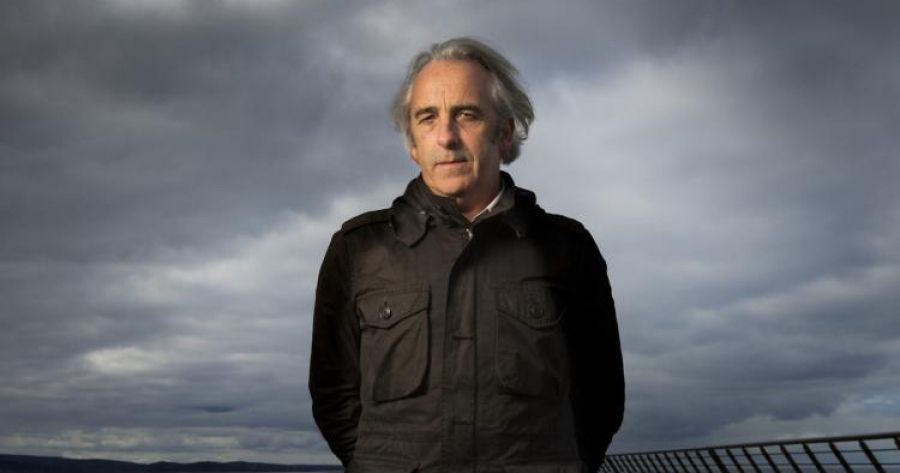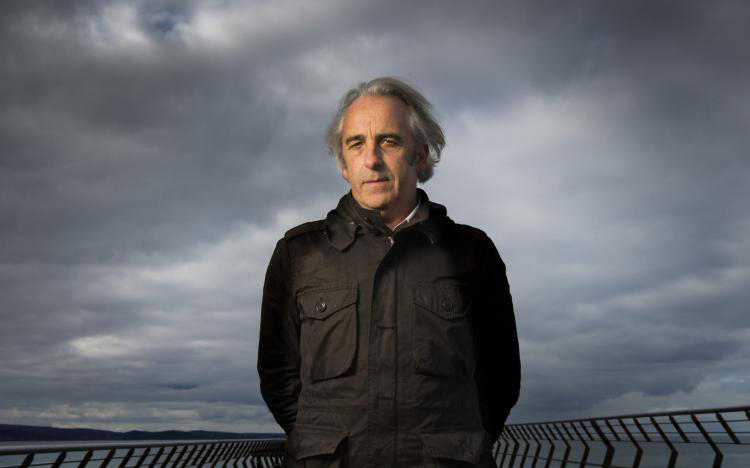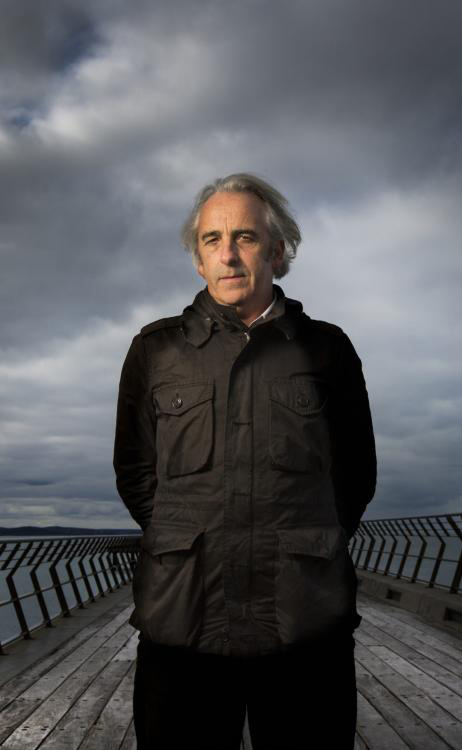
- Free Article: No
- Contents Category: Interview
- Custom Article Title: Poet of the Month with Gregory Day
- Review Article: No
- Article Title: Poet of the Month with Gregory Day
- Online Only: No
- Custom Highlight Text:
Gregory Day is a writer and musician from the west coast of Victoria. He lives on Wadawurrung country. Gregory is a winner of the Australian Literature Society Gold Medal, the Nature Conservancy Australia Nature Writing Prize, and the Patrick White Award for his ongoing contribution to Australian literature. He has twice been shortlisted for the Miles Franklin Award, most recently in 2024 for The Bell of the World. His newest collection, Southsightedness, was published in April by Transit Lounge.
- Featured Image (400px * 250px):

- Alt Tag (Featured Image): Poet of the Month with Gregory Day
Which poets have influenced you most?
Ange Mlinko’s my go-to at the moment, but I suppose there is a difference between the poets you enjoy most and the ones that change your writing. I would say the lyrical narrative function that comes down through the Irish centuries is something I’m conscious of inheriting. For instance, Heaney’s translation of Sweeney Astray is a sonic hearth to me. I spent a decade setting Yeats to music, so his is the work that’s most in my body, but my tastes are sufficiently catholic and experimental to range beyond patrician modes.
Are poems chiefly inspired or crafted?
Both. There’s the moment of ignition, the gift, and then the artisanal process of doing justice to that.
What prompts a new poem?
For me, a magnetic field opens up around a single word, a phrase or a line. Then it’s on for young and old. Where this magnetism comes from beats me. Life’s too precious to do anything but accept it.
What circumstances are ideal for writing poetry?
Any café with moonahs nearby. Or moomins! But really, walking’s my go. After a couple of hours on the track, the heart and head become friends and a numinous linguistic synergy becomes possible. The question then is one of translation. How to get the lines back to the house in one piece? Sometimes they get left out there of course. And that can be just as well.
Roughly how many drafts do you produce before ‘finishing’ a poem?
My sense of drafting is these days a continuous one. There is no sharp point where one draft ends and the next begins. It’s more about the period of time in which the poem stays ‘live’. That can vary, in my experience from one or two days to twenty or so years. There is a poem in my collection Southsightedness that did take twenty years to find its shape, and a few others that were brewing for a number of years.
Which poet would you most like to talk to – and why?
My old friend Christos Raskatos, whom I worked with for many years in the Lorne Fishing co-op. I miss him dearly.
Do you have a favourite Australian poetry collection?
Michael Farrell’s I Love Poetry would have to be up there. He’s so playfully brilliant. I like Alison Whittaker’s Blakwork a lot, Maria Takolander’s Trigger Warning, and Kate Fagan’s recent Song in the Grass. Fagan’s also a musician of course, as am I. It’s a convergence I’m very interested in. I mean, where exactly is the line? Which leads me, of course, to Gwen Harwood. Her Selected Poems would be a must.
What do poets need most: solitude or a coterie?
Dunno if there’s any such thing as ‘poets’. We’re all different, I’d say. Some play footy, some don’t. We dwell in many and varied habitats too, which is a huge factor.
Who are the poetry critics you most admire?
Susan Howe, Jed Rasula, and Alice Oswald.
If Plato allowed you to keep one poem or poetry collection in his Republic, what would it be?
The Collected Poems of George Mackay Brown.
What is your favourite line of poetry (or couplet)?
Well, there’s too many, but for now:
The riverbed, dried up, half-full of leaves.
Us, listening to a river in the trees.The Haw Lantern, Seamus Heaney
How can we inspire greater regard for poetry among readers?
By conscripting all eighteen-year-old Australians into poetry school for two years. By not putting The Barefoot Investor on high-school English syllabuses. By ditching the lame companion (the mobile phone). By gardening. Really, I wouldn’t have a clue.



Comments powered by CComment